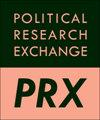Illiberal, anti-liberal or post-liberal democracy? Conceptualizing the relationship between populism and political liberalism
IF 1.8
Q2 POLITICAL SCIENCE
引用次数: 0
Abstract
ABSTRACT While most authors have attempted to conceptualize populism by exploring its relation with representative democracy, this note is concerned with a different, yet equally pressing issue: How is populism related to the other building block of contemporary democracies – political liberalism? Most commonly, populism has, in academic as political discourses, been described as ‘illiberal’. But the precise meaning of this ‘illiberal’ character is elusive, and often overlaps with other concepts such as ‘anti-liberal’ or even ‘post-liberal’. This conceptual haze is not only detrimental to political theorists, but to comparative political scientists as well. Therefore, the aim of this paper is to clarify these concepts, in order to cast light on the relationship between populism and political liberalism. It provides a review and critical discussion of the concepts of ‘illiberalism’, ‘anti-liberalism’ and ‘post-liberalism’; further, it offers to organize them in a coherent, and empirically productive, manner. In particular, it argues that ‘illiberalism’ should be treated with much caution; instead, it defines more workable concepts of ‘anti-liberalism’ and ‘post-liberalism’. So doing, it suggests how these concepts could be used in combination to fruitfully account for different dimensions of the study of populism, namely research on populist discourses, ideas and practices.非自由主义、反自由主义还是后自由主义民主?界定民粹主义与政治自由主义的关系
摘要尽管大多数作者都试图通过探索民粹主义与代议制民主的关系来将其概念化,但本文关注的是一个不同但同样紧迫的问题:民粹主义与当代民主的另一个组成部分——政治自由主义——有何联系?最常见的是,民粹主义在学术和政治话语中被描述为“不自由”。但这种“非自由”性质的确切含义是难以捉摸的,并且经常与“反自由主义”甚至“后自由主义”等其他概念重叠。这种概念上的阴霾不仅对政治理论家不利,对比较政治学家也不利。因此,本文的目的是澄清这些概念,以揭示民粹主义与政治自由主义之间的关系。它对“非自由主义”、“反自由主义”和“后自由主义”的概念进行了回顾和批判性讨论;此外,它还提供了一种连贯的、经验丰富的方式来组织它们。特别是,它认为应该非常谨慎地对待“非自由主义”;相反,它定义了更可行的“反自由主义”和“后自由主义”概念。因此,它建议如何将这些概念结合起来,以富有成效地解释民粹主义研究的不同维度,即对民粹主义话语、思想和实践的研究。
本文章由计算机程序翻译,如有差异,请以英文原文为准。
求助全文
约1分钟内获得全文
求助全文

 求助内容:
求助内容: 应助结果提醒方式:
应助结果提醒方式:


